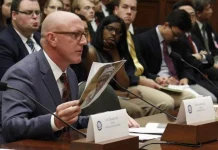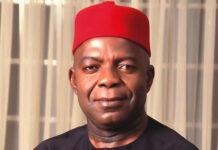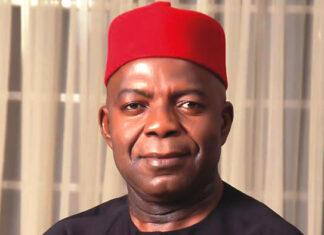Nigeria is charting an ambitious course toward a sustainable digital future built on innovation, inclusivity, and resilience — a vision at the heart of President Bola Ahmed Tinubu’s Renewed Hope Agenda, which seeks to reform the economy, boost infrastructure, diversify growth through digitalization, and enhance governance for efficient service delivery.
This was the central message delivered by Kashifu Inuwa Abdullahi, CCIE, Director-General of the National Information Technology Development Agency (NITDA), during his keynote address at the Nordic-Nigeria Connect 2025 conference held in Lagos.
Speaking on the theme “Nigeria’s Digital Infrastructure Ambition and Path to Sustainability,” Inuwa emphasized that the country’s digital drive goes beyond constructing data centers or laying fiber-optic cables. Rather, it represents a broader mission to redesign Nigeria’s economic and social systems through inclusivity, security, and digital prosperity.
He outlined Nigeria’s digital vision as resting on two key components — the Shared Digital Backbone and the Operational Backbone. The Shared Digital Backbone encompasses the nation’s physical infrastructure such as terrestrial fiber optics, subsea cables, green data centers, and sovereign cloud services to ensure data security and digital sovereignty.
The Operational Backbone, he explained, forms the software layer — Nigeria’s Digital Public Infrastructure (DPI) — which integrates systems like digital identity, payment frameworks, and secure data exchange platforms. Together, these backbones form a unified national digital ecosystem designed to empower startups and drive homegrown innovation.
Referencing the recent Amazon Web Services (AWS) outage that disrupted operations across several African countries, Inuwa underscored the importance of digital independence.
“This incident reminds us that relying solely on foreign cloud regions does not ensure business continuity or digital independence. We must build the capacity for digital self-determination,” he said.
Inuwa highlighted three foundational pillars guiding Nigeria’s path to digital sustainability — Policy, People, and Partnerships.
Under the Policy Pillar, he noted that the government is fostering a pro-innovation regulatory environment through initiatives like the Nigeria Startup Act and the Data Protection Act, designed to encourage growth and protect digital rights.
On the People Pillar, he emphasized human capital as the engine of sustainable infrastructure, citing the National Digital Literacy Framework and the Three Million Technical Talent (3MTT) programme, which are equipping Nigerians with the skills to design and drive digital transformation.
Under the Partnership Pillar, Inuwa stressed the importance of strategic collaboration with global partners, particularly the Nordic region, noting that Nigeria is shifting from ad-hoc engagements to structured partnerships that promote joint ventures, investments, and co-development of technologies such as Artificial Intelligence (AI).
He also highlighted several transformative initiatives, including Project BRIDGE, which is expanding Nigeria’s fiber network to 125,000 kilometers through public-private partnerships, and the National Sovereign Cloud Initiative, aimed at strengthening data storage capacity within Nigeria. On the software front, the Nigeria Stack is powering digital identity, payments, and data exchange systems, while the OneGOV platform will unify all government services under a single digital window.
Additionally, the National Centre for Artificial Intelligence and Robotics (NCAIR) continues to lead in applied AI innovation through projects such as the AI Collective and N-ATLAS, Nigeria’s indigenous large language model initiative.
Inuwa reaffirmed that Nigeria’s digital transformation journey rests on robust infrastructure, human capacity development, and strategic global alliances.
“With a clear vision, deliberate strategy, and inclusive policy frameworks, we are confident that Nigeria will not only achieve digital sustainability — we will lead Africa’s digital transformation,” he declared.


























